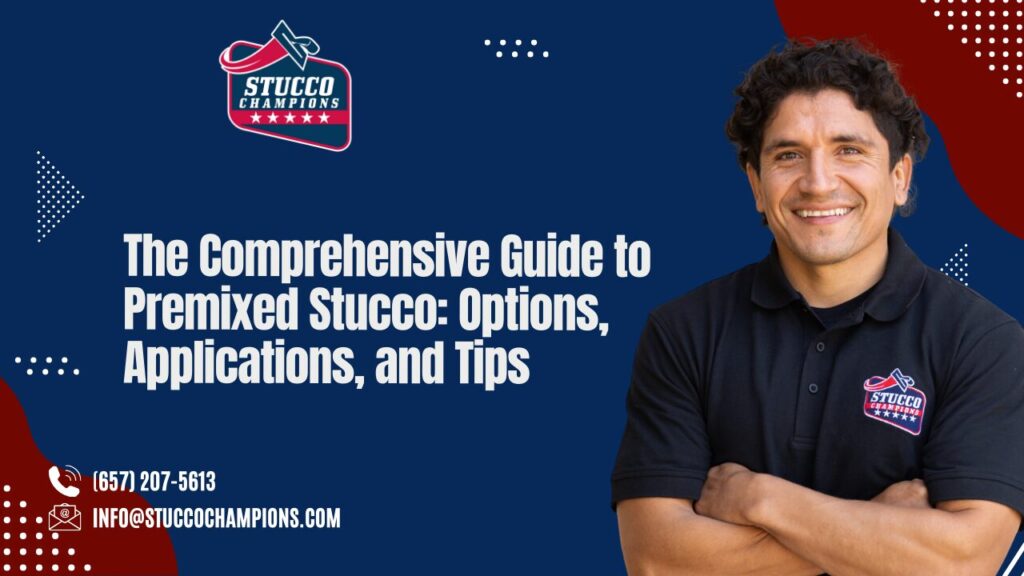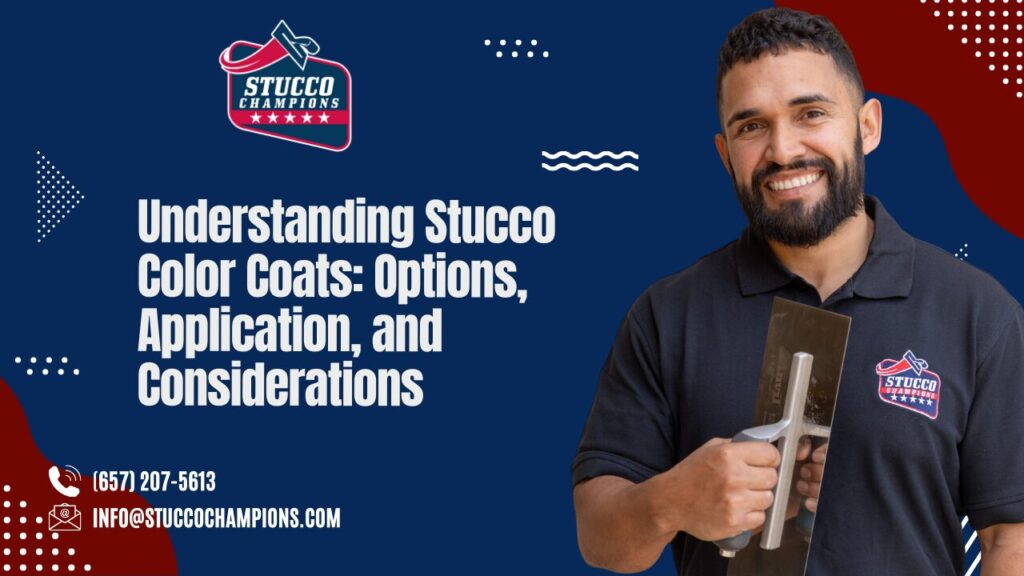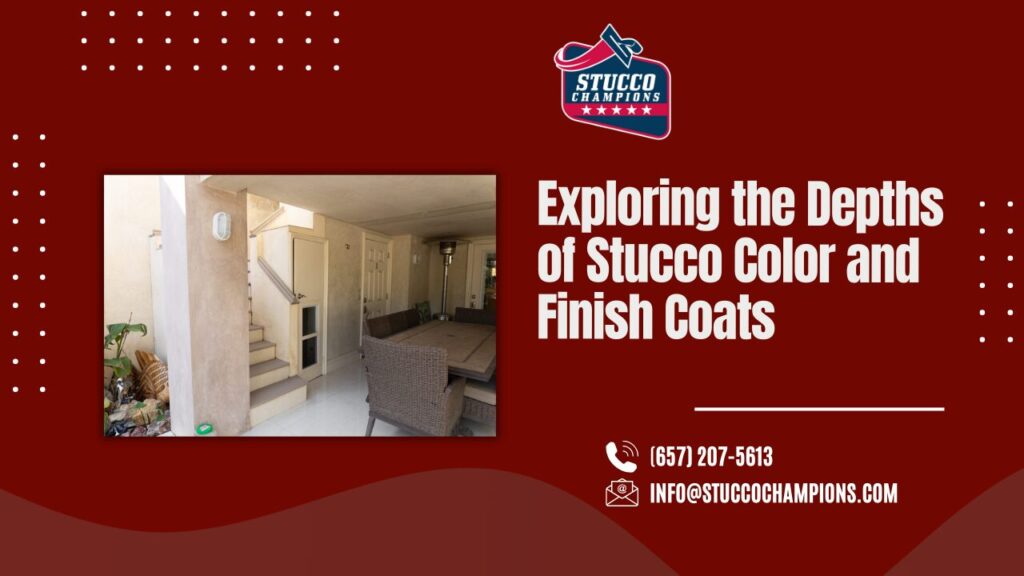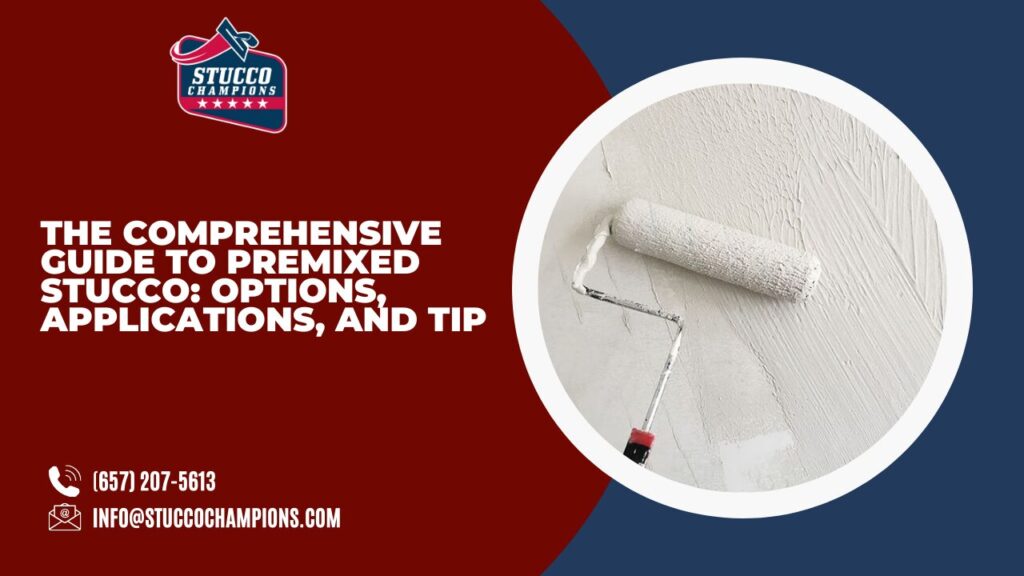Premixed stucco, a convenient option for both DIY enthusiasts and professionals, combines color and finish material for ease of application. This article aims to provide a thorough understanding of premixed stucco, covering its types, benefits, and considerations. My insights are drawn from extensive experience in the field, without any brand affiliations.
What is Premixed Stucco?
Premixed stucco is a blend of stucco finish material (acrylic and cement-based finishes) with color, prepared at the factory for consistent color and quality. This preparation incurs an additional cost due to the labor involved, but it offers significant advantages in terms of ease and consistency.
Types of Premixed Stucco
- Cement-Based Finishes: These use a base of white or gray-white cement with a colored powder pack. In a premixed bag, sand, cement, and color are combined. It’s important to use the entire bag for consistent color, as the dry ingredients may not distribute evenly throughout.
- Acrylic-Based Finishes: These finishes are mixed with a liquid color, ensuring uniformity. Available in 5-gallon buckets, they can be used in any quantity as the color is evenly distributed and remains stable in the mixture.
Brand Transparency
While I reference LaHabra’s products for illustrative purposes, it’s important to note that most stucco manufacturers offer similar premixed options. My references are based on experience, not brand endorsements.
Patch Kits
Patch kits, smaller versions of the full-sized product, are also available in premixed forms. They are ideal for repairing smaller areas and maintain the same quality and consistency as their larger counterparts.
Where to Find Premixed Stucco
Premixed stucco can be sourced directly from manufacturers like Omega, LaHabra, Western Stucco, and Merlex. Local stucco suppliers can also facilitate orders, simplifying the process for consumers.
Color Options
Manufacturers provide color charts with a wide range of options for both cement-based and acrylic finishes. Custom colors are also available to match existing wall colors or specific design requirements.
Comparing Premixed vs. Self-Mixing Stucco
Choosing between premixed and self-mixing stucco depends on factors like skill level, project size, and time constraints. Premixed stucco offers convenience and consistency, while self-mixing allows for more customization and potential cost savings.
Cost Comparisons
Premixed stucco typically costs more due to the added labor of mixing and ensuring color consistency. Self-mixing might be more cost-effective, especially for larger projects or when specific color matching is not a priority.
Technical Considerations
- Compatibility: Ensure that the premixed stucco is compatible with your existing stucco, especially in terms of texture and adherence.
- Limitations: Some premixed options may have limitations in texture variety or application methods.
Application Tips
- Texture and Repairs: Different textures may require specific application techniques. Use the appropriate tools and follow manufacturer guidelines for the best results.
- **Working with Patch
Kits: For small repairs, patch kits are ideal. They offer the same quality as larger quantities but are more manageable for minor fixes. Ensure that the patch kit’s texture and color match the existing stucco.
Maintenance Considerations
Different textures and colors in stucco may require varied maintenance routines. Regular inspections and cleaning can prolong the life and appearance of stucco finishes.
Regional Variations
Availability and types of premixed stucco may vary regionally. It’s advisable to consult local experts or suppliers for products suited to specific climatic conditions and regional construction norms.
Explaining Technical Terms
- Cement Based: Refers to stucco that uses cement as the primary binding material.
- Patch Kits: Small packages of stucco used for minor repairs and touch-ups.
Case Studies and Recommendations
Incorporating case studies, such as successful home renovation projects using premixed stucco, can offer practical insights and demonstrate the product’s versatility and effectiveness.
To further enhance the value of this article, let’s discuss:
- Factors to Consider: Evaluate the scale of your project, desired finish, and time constraints when choosing between premixed and self-mixed stucco.
- Cost-Benefit Analysis: Weigh the convenience of premixed stucco against its cost, especially for larger projects where self-mixing could be more economical.
- DIY vs. Professional Application: For those less experienced, premixed stucco can simplify the DIY process. However, larger or more complex projects might benefit from professional application.
Conclusion
Premixed stucco offers a convenient, consistent option for both small-scale DIY projects and larger professional applications. By understanding its types, benefits, and application methods, users can make informed decisions that best suit their needs and preferences. This guide aims to demystify premixed stucco, providing valuable insights for homeowners and construction enthusiasts alike.
Last week, we shared Understanding the Varied Thickness of Stucco Walls: A Comprehensive Guide, explaining how wall thickness impacts durability, insulation, and aesthetic appeal. If you’re planning a stucco project, be sure to check out this detailed guide for expert insights!




